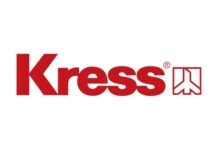Franchisors’ strategies to differentiate their brands from the crowd
All companies have a brand, or the way that clients and potential customers view them in their respective markets. A positive brand allows a local lawn care company to grow through word-of-mouth and through advertising. But there may be a limit as to how far and, more importantly, how much growth a small independent lawn care firm can generate or how successfully it can expand out of a limited market area.
Because the lawn service industry offers few barriers to entry, competitors enter the market frequently. This places downward pressures on pricing and can give the public the impression that our industry is not always professional and that quality standards are either nonexistent or too relaxed.
Franchisors have developed precise profit models and business systems to measure labor and material costs and to ensure that both are being used efficiently and productively. The goal of these proprietary technologies is to help franchisees maximize sales and improve production efficiencies.
But before any of that can happen those additional potential clients must believe they are receiving value for the brand they are buying. That’s where marketing and sales come in. Obviously marketing and sales must be backed by customer-pleasing service. Otherwise the market drops to the lowest common denominator – i.e. companies with substandard service and with little real knowledge about how to grow and manage healthy turf and ornamentals.
Aiding Turf Irrigation Efficiency
Whether as part of a national franchise or operating as an independent maintenance provider, developing additional services can become a significant source of new income stream for professionals.
Products, such as Hydretain, a biodegradable soil moisture management technology, reduce the amount of water needed to grow plantings and turf, claims manufacturer Ecologel Solutions, LLC.
As drought conditions plague regions of the country, and as temporary water shortages sporadically affect watering in individual communities, this agent captures subsurface humidity before it is lost to evaporation, reducing overall watering by as much as 50 percent, the company says. The product is not a wetting agent but a patented group of hygroscopic and humectant compounds which forms a thin film on plant roots and soil particles converting moisture vapor within the soil into plant useable water droplets.
Richard K. Irwin, president, Ecologel Solutions, says research done at the University of Florida showed a dramatic reduction in the watering requirements of bedding plants in containers. Hydretain, initially marketed for use in greenhouses and retail stores, has since proven to reduce watering requirements for turf, trees and agriculture.
“Hydretain is available through quality horticultural distributors nationally and internationally under the brand names “Hydretain” from Ecologel Solutions, LLC, H3O from BioPro Technologies and Moisture Manager from John Deere Landscapes,” says Irwin.
Franchisors work to perfect their brands because they seek to offer their franchise holders systems that allow them to offer services beyond merely basic lawn fertilization and weed control or cutting and trimming grass. This expertise is what differentiates them from low-ball competitors. Marketing is the promotion of that brand through communications and the distribution of information and sales materials.

Franchisees can customize various marketing materials for their locations while maintaining the branding behind the franchise.
Photo courtes y of Weed Man.
Locally owned
Roman Skrypuch, director of franchise development, Weed Man U.S.A., says, “We position our franchises as locally owned and operated lawn-care providers who are given the tools to operate as knowledgeable professionals.
“While this message is very simple, it resonates with lawn care customers who place a priority on trust. This promise of dedication to professionalism and customer service has distinguished Weed Man from many of the smaller operations, and of larger national companies, creating a competitive edge that continues to gain momentum in the United States.”
Trust is a marketable commodity, an identifiable trademark, he insists. It is that reassurance that clients’ biggest investments, their homes and properties, are in professional hands.
Reliability, consistency, being innovative: there are many positives attributes that create a business value system that distinguishes a winning brand. But before these characteristics can be developed, companies must first understand how their businesses are perceived. A positive brand assures the potential customers to expect a certain level of excellence.
Franchisors allow businesses to adopt their carefully established brands, for which the franchisee pays a royalty fee, however the value system must be built from within the local franchise.
“It’s imperative that our brand delivers a consistent message to the market,” says Brandon Moxam, director of brand development, U.S. Lawns, Orlando, Florida. “When you are a network of our size, with hundreds of locally-owned locations and thousands of U.S. Lawns-branded employees, this has critical implications. Every provider from Raleigh to Reno must deliver a consistent, replicable customer experience.”
Angela Zerda, directing of marketing, Mosquito Joe, adds that branding is the essential first step in the uniformity of national services.
“To maintain consistency in our branding we provide brand guidelines for each of our franchisees to follow as well as various marketing tools to help them customize materials for their location while maintaining the branding behind it,” says Zerda.
Those marketing tools enable a new franchisee to reinforce that brand and to follow up with consistent marketing efforts, both locally and nationally.
“Consumers recognize us with each marketing message they see, which is extremely important because it typically takes several touches from a brand before a consumer takes action,” Zerda adds.
Those messages, or “touches,” come in different forms and with different content through various marketing programs offered by franchisors. Increasingly, in this digital age, they are driven by technology.
The digital message
“It’s not about just having a website,” says James Young, president of Illinois-based Spring-Green Lawn Care. “It is about creating relevant content across all digital channels and making sure consumers are engaged and the engagement is seamless on any type of device.
“Spring-Green recognizes consumers conduct research online in many ways, and that they are subject to influence across the digital landscape. Whether it’s a Yelp or Google-Places rating, or a current customer sharing their experience on Pinterest, Facebook or Angie’s List, the message needs to be consistent,” he adds.
Franchisors offer direct marketing in the form of call centers that develop leads and provide digital/Internet guidance wherein collected data is analyzed relevant to targeted markets including demographics. Because of the costs involved, this level of sophistication could be difficult for non-affiliated maintenance companies to match.
Les Sander, national franchise representative, Border Magic LLC and Boulder Designs LLC, explains, “Franchise systems provide consistent plug-and-play marketing that allows the franchiser to spend more time running their operations and less time inventing the wheel in creating marketing pieces that offer products and services to their customers.”
These advanced marketing tools generate new business for local franchisees, but also allows them more time to actually perform the services that customers want.
Ryan Meinika, Spring-Green franchise owner, Ft. Wayne, Indiana, says, “My business grew by over 30 percent this spring and, with the weather pressure and increased demands on getting the work done, my focus had to be in the field. Knowing the call center was able to represent my business in a professional manner is a testament to Spring-Green’s commitment to its owners.”
National advertising comes in the form or radio, television, magazines, newspapers and Internet display-ads and are designed to familiarize people with the company’s focal services and create additional touches for brand identification; efforts are made to provide interesting logos, company colors, professional uniforms and display images of state-of-the-art equipment. All of this carries the central message of the company’s core values and services.
Including both referrals and renewals, everything in this digital age is analyzed
Local marketing, fed from the national franchisor, includes the hands-on approach with distribution of flyers and door hangers, mailers, messages on invoices, even coaching employees how to meet and great clients and how to address clients when answering the phone.
Marketing managers provide basic business templates for web design and stationary, provide logos for equipment and offer designs for uniforms featuring company colors and logos. All this adds to the local brand and reinforces the national brand.
Franchisors measure and analyze these various marketing techniques, along with sponsoring national sales campaigns, because information drives sales. Skrypuch says, “Exact details are put into place with respect to each marketing campaign such as start date, finish date, how many people are required, how many leads will be generated daily or weekly or monthly, how many sales, again, daily or weekly or monthly.”
Social media is not only monitored, but computer search engine results are carefully examined. Local and national websites are measured in terms of “hits” and slogans are tried and revised and even corporate colors are tested to ensure their subtle messages are delivered and received positively.
“We recently changed our primary color from green to blue,” says Moxam of U.S. Lawns. “Why? We picked a color that denotes service and professionalism. We aren’t in the business of mowing lawns, though we do plenty of that. We are in the business of serving people. When you hire us, you’re hiring a business partner and friend.”
When the message is clearly defined, the brand becomes the promise to the customer that these values will be delivered each time that service is performed. This brand equity is the added value brought to the businesses’ products or services allowing for the franchisee to charge more, for what many times can be the identical services of an unbranded company.
Marketing then is the marshaling of various forms of communications to reinforce that brand. And the innovative and strategic ways in which brands are marketed are almost endless.
Moxam, U.S. Lawns says, “It’s all about sending the right message. In the information age, it’s easy for prospects to learn about you just as you’re learning about them. Very few companies hire vendors without researching them first. We provide ongoing sales training, both in the classroom and out in the field at the local level. We also help our franchisees initiate e-marketing educational drip campaigns to potential and existing customers. For new franchise owners, we offer a lead appointment setting program to help them get out of the box more effectively.”
Kel Giard, president, Clean Air Lawn Care, Fort Collins, Colorado, explains how his training programs feature promotion and branding for franchisees, while also schooling them in the art of organic lawn care.
“One of Clean Air’s competitive marketing advantages is depth of knowledge at the owner and manager’s level relating to organic lawn-care,” he says. “Clean Air has pioneered the first full-service organic lawn-care training program in the United States. It includes comprehensive turf science, soil science, battery management, solar maintenance, organic treatment program creation and weed control strategies. Our owner groups are constantly evaluating new products, equipment and strategies as they are released to the organic market.”
These wide-ranging approaches to the green industry’s many facets, is the comprehensive nature and tangible values of franchising.
Mike Ingles is a freelancer writer living in Columbus, Ohio, who writes articles about business and the green industry. Contact him at duckrun22@gmail.com.











![[VIDEO] Dickies®: Discover Workwear That’s Anything But Uniform](https://turfmagazine.com/wp-content/uploads/2023/06/1647663814-4b1a2a7742790a9b1e97a3b963477850192e1d6a9dfba9b07214a77bae25d6e3-d-218x150.jpg)





























![[VIDEO] Dickies®: Discover Workwear That’s Anything But Uniform](https://turfmagazine.com/wp-content/uploads/2023/06/1647663814-4b1a2a7742790a9b1e97a3b963477850192e1d6a9dfba9b07214a77bae25d6e3-d-324x160.jpg)